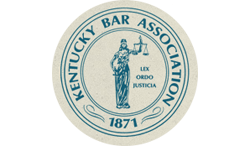Nursing homes need to take extra precautions in the winter to keep their residents safe and healthy. The winter seasons brings a lot of challenges that could threaten your loved one’s well-being. If you have a loved one in a nursing home, you expect them to have safety measures and plans in the event of an emergency.
But sometimes they may not take the best care of their residents in the winter. If you think your loved one is being abused, a Paducah nursing home abuse lawyer from Daryl. T. Dixon Law can help you fight on behalf of your loved one and get them the justice they deserve.
Winter Dangers to Prepare For
Winter can pose threats to health, wellbeing, and to the nursing home itself. Whether it’s extreme cold or an illness, nursing homes need to have plans that prevent winter dangers from affecting residents. Nursing homes should watch out for:
- Hypothermia. People get hypothermia when their body temperature drops below 95 degrees. Noticeable hypothermia symptoms include shivering, drowsiness, and trouble moving. Elderly people are more at risk for hypothermia, especially if they have dementia, mental illness, or have injuries from falls or fractures.
- Using Indoor Heating Devices. Major temperature drops can wreak havoc on heating systems. Portable space heaters may not be permitted in a nursing home because they pose a fire hazard and a possible tripping hazard. Before winter begins, nursing homes should get their heating system checked to make sure everything is working and look into energy assistance programs to set up a prevention plan in case of an emergency situation.
- Food and Water Preparedness. Depending on where the nursing home is, your area may get severe winter weather. The nursing home should make sure that they have plenty of non-perishable food and water to last a couple of days if they ever get snowed in.
- Clear Ice and Snow from Walkways. Sidewalks, parking lots, and staircases need to be cleared regularly. Shoveling and salt are the best ways to keep them safe to walk on. If you wait, the snow can turn into ice and people can slip and fall.
- Floor Mats in Entry Ways. People track in snow and it can make floor surfaces slippery and dangerous. Entry ways should have mats and make sure that hard surfaces aren’t wet.
- Handling Illness. Elderly people can’t fight off a flu as easily as younger people. If a resident gets sick, the nurses need to make sure they’re staying hydrated and clean to help flush the sickness out of their system and fight off germs that could spread to other residents. Regularly disinfecting common areas can help kill germs. Everyone touches door handles, light switches, and tables, so these should be main areas to wipe down.
Nursing homes have a responsibility to do all they can to make sure their residents are healthy and safe. Check that your loved one’s nursing home is taking measures or have plans for the above scenarios.


























